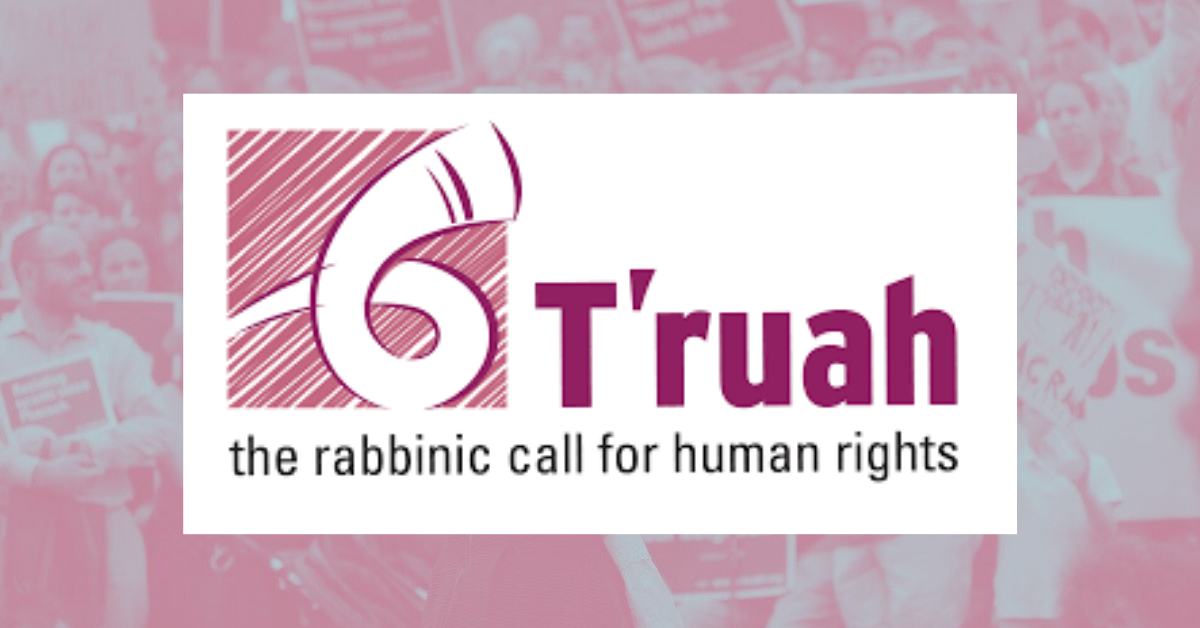T’ruah rabbis emphasize the state’s moral obligation to support workers, regardless of citizenship status
NEW YORK — A group of rabbis and cantors who have been making the moral case for New York to support its excluded workers are celebrating the establishment of a $2.1 billion Excluded Workers Fund as part of the state budget agreement announced yesterday evening. The fund will provide relief to essential workers who were excluded from stimulus and other COVID-19 relief.
T’ruah, a rabbinic human rights organization that represents over 2,000 rabbis and cantors and their communities in North America, has been supporting the workers who organized and went on a hunger strike to secure passage of the fund, including organizing a letter with Jews For Racial and Economic Justice (JFREJ) signed by over 100 New York rabbis and cantors urging for the creation of this fund ahead of the finalization of the state budget. In addition, T’ruah and JFREJ members made calls to their state elected officials in support of the Excluded Workers Fund.
T’ruah rabbis stood with excluded workers who launched a hunger strike to bring attention to the issue. Undocumented workers and individuals recently released from incarceration are disproportionately likely to be working in essential jobs — yet have also been blocked from receiving even a single penny in unemployment insurance, pandemic unemployment assistance, or stimulus relief, the letter reads.
Rabbi Jill Jacobs, executive director of T’ruah, released the following statement:
“The creation of the Excluded Workers Fund is a huge victory for New York workers. While the fund does not go far enough to meet the tremendous need, it is a major step forward that demonstrates the responsibility to care for all New Yorkers and the inherent worth of every person.
This victory is the result of tireless advocacy by these essential, but excluded, workers and advocates organized through Make the Road New York and other community organizing groups. We will continue to support their efforts as they focus on the implementation of the new fund to ensure it remains as broadly accessible as possible.
We know that undocumented workers and individuals recently released from incarceration are disproportionately likely to be working in essential jobs, yet they have also been blocked from receiving even a single penny in Unemployment Insurance, Pandemic Unemployment Assistance, or stimulus relief.
Jewish text on supporting the dignity of workers is clear. The Torah teaches, “You shall not abuse a needy and destitute laborer, whether a fellow countryman or a stranger in one of the communities of your land.” (Deuteronomy 24:14) As we recently celebrated Passover and the Israelites’ liberation from Egypt, we are reminded of the need to treat workers justly and with dignity. It was the Israelites’ cries under unjust bondage that led God to take notice of them and ultimately brought about their liberation; we see these workers in the tradition of our ancestors and believe all those with power have a responsibility to lessen their burden.
These workers have been essential to our survival this year, and we are proud to stand in solidarity with them.”
About T’ruah: The Rabbinic Call for Human Rights
T’ruah: The Rabbinic Call for Human Rights mobilizes a network of more than 2,000 rabbis and cantors from all streams of Judaism that, together with the Jewish community, act on the Jewish imperative to respect and advance the human rights of all people. Grounded in Torah and our Jewish historical experience and guided by the Universal Declaration of Human Rights, we call upon Jews to assert Jewish values by raising our voices and taking concrete steps to protect and expand human rights in North America, Israel, and the occupied Palestinian territories.

